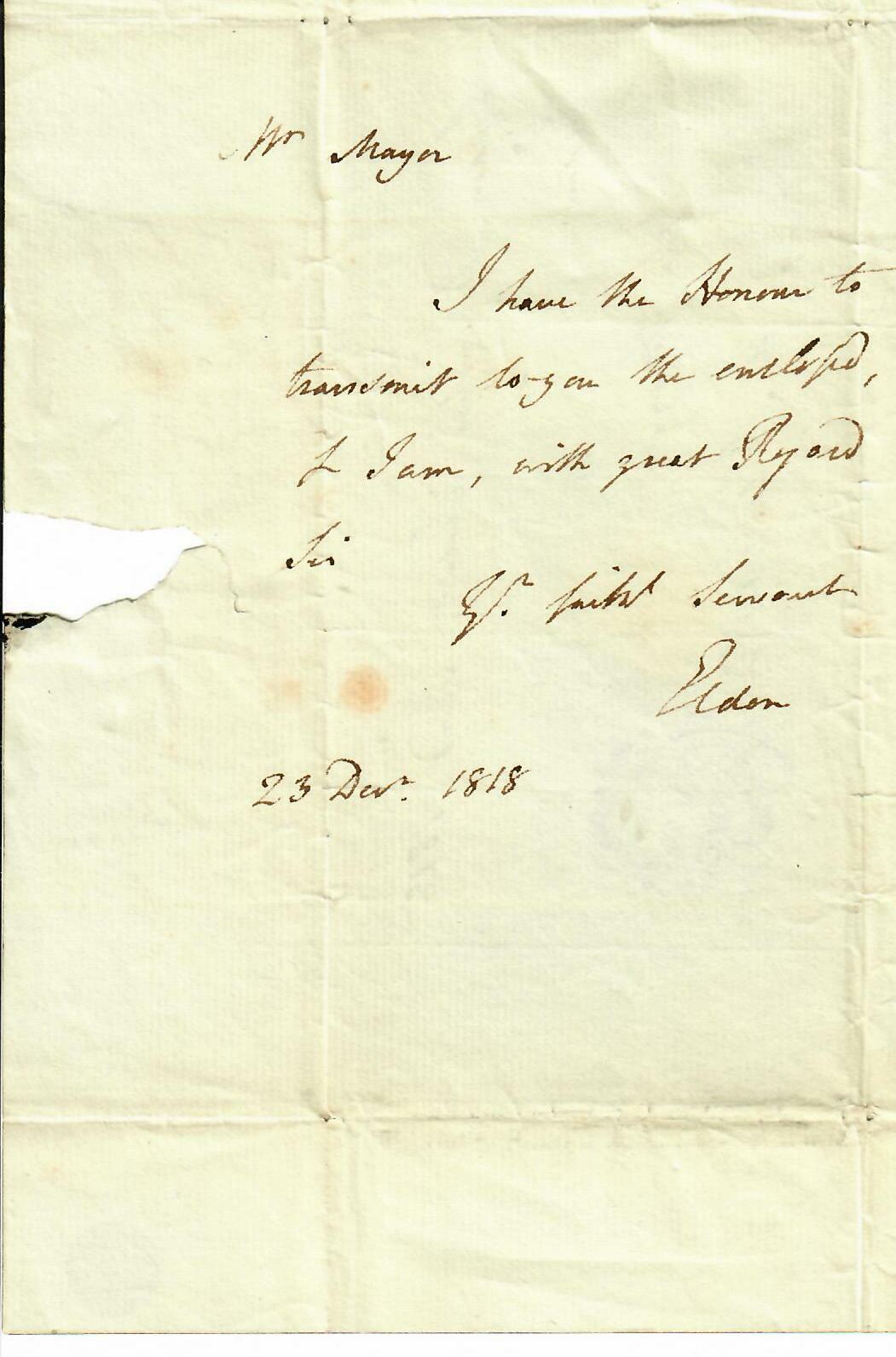|

On eBay Now...
"1st Earl of Eldon" John Scott Hand Signed Free Frank Dated 1818 For Sale

When you click on links to various merchants on this site and make a purchase, this can result in this site earning a commission. Affiliate programs and affiliations include, but are not limited to, the eBay Partner Network.

"1st Earl of Eldon" John Scott Hand Signed Free Frank Dated 1818:
$90.99
Up for sale the "1st Earl of Eldon" John Scott Hand Signed Free Frank Dated 1818. On reverse is an actual have written letter which is also signed.
ES-7792E John Scott, 1st Earl of Eldon, PC, QC, FRS, FSA (4 June 1751 – 13 January 1838) was a British barrister and politician. He served as Lord High Chancellor of Great Britain between 1801 and 1806 and again between 1807 and 1827. Eldon was born in Newcastle upon Tyne. His grandfather, William Scott of Sandgate, a street adjacent to the Newcastle quayside, was clerk to a fitter, a sort of water-carrier and broker of coals. His father, whose name also was William, began life as an apprentice to a fitter, in which service he obtained the freedom of Newcastle, becoming a member of the guild of Hostmen (coal-fitters);[1] later in life he became a principal in the business, and attained a respectable position as a merchant in Newcastle, accumulating property worth nearly £20,000. Eldon was educated at Newcastle upon Tyne Royal Grammar School. He was not remarkable at school for application to his studies, though his wonderful memory enabled him to make good progress in them; he frequently played truant and was whipped for it, robbed orchards, and indulged in other questionable schoolboy pranks; nor did he always come out of his scrapes with honour and a character for truthfulness. When he had finished his education at the grammar school, his father thought of apprenticing him to his own business, to which an elder brother Henry had already devoted himself; and it was only through the influence of his elder brother William (afterwards Lord Stowell), who had already obtained a fellowship at University College, Oxford, that it was ultimately resolved that he should continue with his studies. Accordingly, in 1766, John Scott entered University College with the view of taking holy orders and obtaining a college living. In the year following he obtained a fellowship, graduated with a Bachelor of Arts in 1770, and in 1771 won the prize for the English essay, the only university prize open in his time for general competition. His wife was the eldest daughter of Aubone Surtees, a Newcastle banker. The Surtees family objected to the match, and attempted to prevent it; but a strong attachment had sprung up between them. On 18 November 1772, Scott, with the aid of a ladder and an old friend, carried off the lady from her father's house in the Sandhill, across the border to Blackshields, in Scotland, where they were married. The father of the bridegroom objected not to his son's choice, but to the time he chose to marry; it was a blight on his son's prospects, depriving him of his fellowship and his chance of church preferment. But while the bride's family refused to associate with the couple, Mr Scott, like a prudent man and an affectionate father, set himself to make the best of a bad matter, and received them kindly, settling on his son £2000. John returned with his wife to Oxford, and continued to hold his fellowship for what is called the year of grace given after marriage, and added to his income by acting as a private tutor. After a time, Mr Surtees was reconciled with his daughter, and made a liberal settlement of £3000. John Scott's year of grace closed without any college living falling vacant; and with his fellowship he gave up the church and turned to the study of law. He became a student at the Middle Temple in January 1773. In 1776, he was called to the bar, intending at first to establish himself as an advocate in his native town, a scheme which his early success led him to abandon, and he soon settled to the practice of his profession in London, and on the northern circuit. In the autumn of 1776, his father died, leaving him a legacy of £1000 over and above the £2000 previously settled on him.


RARE "1st Earl Howe" Richard Curzon-Howe Hand Written Letter COA $489.99

"1st Earl Granville" Granville Leveson-Gower 3X5.5 Clipped Signature $279.99

RARE "1st Earl of Craven" William Craven Signed 3X5 Card $209.99

"1st Earl of Halifax" Edward Wood hand Signed 2.5X4.5 Card $209.99

John Russell, 1st Earl Signed Clip / Autographed British Prime Minister $23.99

Frederick Roberts, 1st Earl Roberts signed letter Commander-in-Chief of the Forc $49.95

"1st Earl Alexander of Tunis" Harold Alexander Hand Signed TLS JG Autographs COA $349.99

VERY RARE "1st Earl Brassey" Thomas Brassey Cut Signature $104.99
|